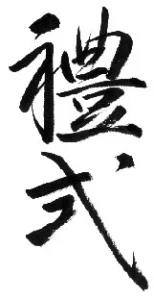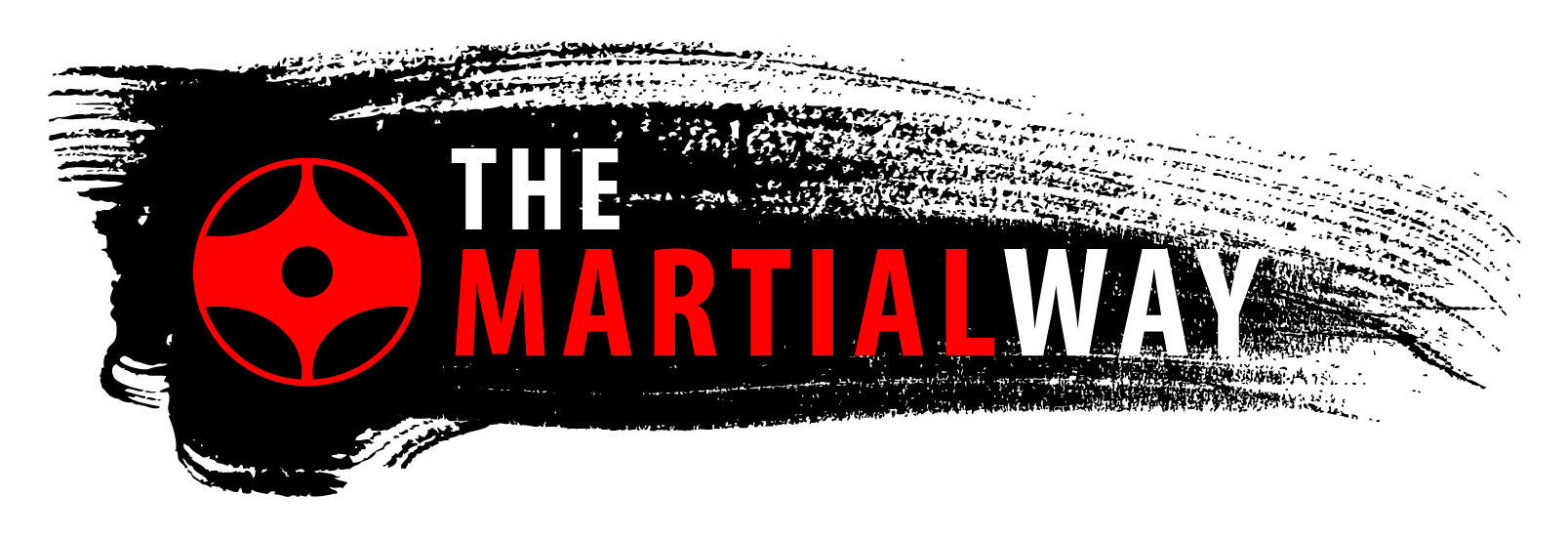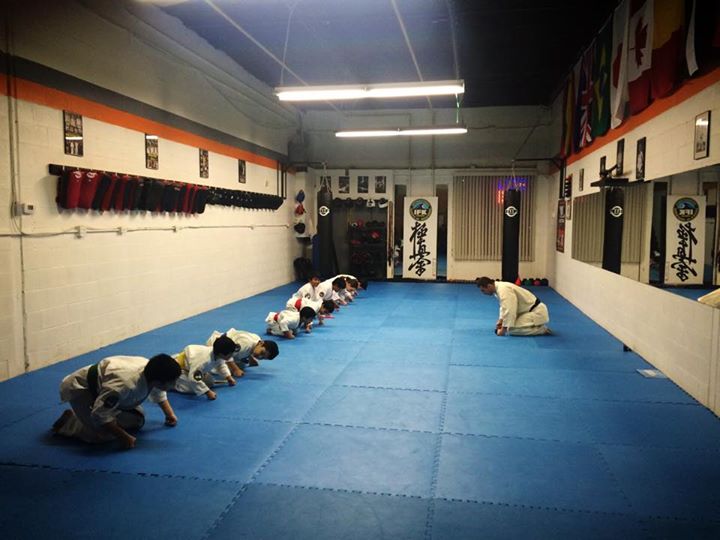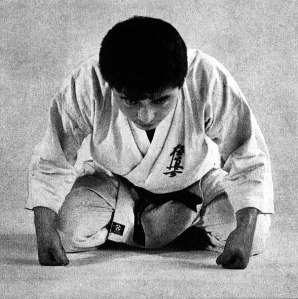Reishiki refers to the example of etiquette or ‘correct behaviours’ in the traditional martial art dojo.
I was just about to write a piece on dojo etiquette,
as it was a strong theme from Monday’s class at Contact Kicks dojo. Sensei Steve Fogarasi was instilling in us the importance of etiquette. Not just from a formal perspective, but from the position that it creates a person who is poised, confident looking and exudes respect.
As I was reflecting on the class I saw a blog piece by the self-proclaimed Karate Nerd, Jesse Enkamp which really exemplified much of what I was hoping to write about. I encourage you to read Jesse’s post, titled What it Means to Be the Black Belt You Were Meant to Be, but I feel the title should have been, “What it Means to be the Karate-ka You Were Meant to be” as this should be a part of your training from day one.
Respect, honor, loyalty, humility, self-control,integrity, honesty… are all the building blocks of Karate, no mater what your style. Etiquette can be defined as forms, manners, and ceremonies – the proper way to behave, clean dogi, properly tied belt, etc., but it’s so much more then that. It begins with probably the first thing we learn in Kyokushin. OSU !
“Osu!” is so much more than a word of understanding, direction etc. As Sensei Fogarasi explains to us, Osu comes from a longer phrase known as “Osu no Seishin”. “Osu!” is a combination of two different kanji. The verb ‘osu’ which means “push”, and ‘shinobu’ which means “to endure”. Together, these two kanji form a new compound word, which symbolizes “combat spirit”, “the importance of patience, determination and perseverance” “the necessity to overcome all obstacles”, “advancing with a positive attitude”, “not showing pain or exhaustion”. Essentially “the spirit of determination and perseverance is the meaning of “Osu!”.
From there Sensei spoke to us, and drilled us, on correct behaviour, stances and aspects of etiquette. For example the correct way to enter or leave the dojo, how to address your sensei, senpai and kohai, knowing where and how to stand in line, to showing respect to your fellow students, and most importantly, to yourself.
Dojo etiquette helps us leave our external roles and responsibilities outside the dojo. Etiquette is a way to honour the founders of our style and honour the Sensei that teaches us. It teaches respect and self-control, it sets the dojo apart from ordinary life. In terms of karate, the practice of reishiki sets the dojo as a place to recognize practices and hierarchies not normally considered in everyday life. You could be a lawyer in your work life, but a white belt in the dojo.
But, what does all of this bowing, stances, yelling have to do with life? Well, besides knowing what to do if you’re ever traveling to a foreign country dojo, it builds within us a foundation that will be recognized in our daily lives. You will walk differently, talk differently and behave differently. In a way that others will respect and want to aspire to. You might not be standing at attention (or perhaps you will), but you will carry yourself in a way that others will not help but notice.
It reminds me of Bushido’s Eight Virtues. The 7 virtues or principles that the Samurai strove to achieve. These are:
- Rectitude (
 , gi) – rightness or practice; exact conformity to truth, or to the rules prescribed for moral conduct, either by divine or human laws; (moral) uprightness, integrity; honesty; morality; straightness.
, gi) – rightness or practice; exact conformity to truth, or to the rules prescribed for moral conduct, either by divine or human laws; (moral) uprightness, integrity; honesty; morality; straightness. - Courage (
 , yu) – the quality of a confident character not to be afraid or intimidated easily but without being incautious or inconsiderate; the ability to do things which one finds frightening.
, yu) – the quality of a confident character not to be afraid or intimidated easily but without being incautious or inconsiderate; the ability to do things which one finds frightening. - Benevolence (
 , jin) – disposition to do good; charitable kindness; an altruistic gift or act.
, jin) – disposition to do good; charitable kindness; an altruistic gift or act. - Respect (
 , rei) – an attitude of consideration or high regard; good opinion, honour, or admiration; polite greetings.
, rei) – an attitude of consideration or high regard; good opinion, honour, or admiration; polite greetings. - Honesty (
 , makoto or shin) – the act, quality, or condition of being honest; to be truthful.
, makoto or shin) – the act, quality, or condition of being honest; to be truthful. - Honour (
 , meiyo) – an objectification of praiseworthiness, respect (for example: something that represents praiseworthiness, respect).
, meiyo) – an objectification of praiseworthiness, respect (for example: something that represents praiseworthiness, respect). - Loyalty (
 , chugi) – unswerving in allegiance; faithful in allegiance to one’s lawful sovereign or government; faithful to a private person to whom fidelity is due; faithful to a cause, ideal, custom, institution, or product; the state of being loyal; fidelity.
, chugi) – unswerving in allegiance; faithful in allegiance to one’s lawful sovereign or government; faithful to a private person to whom fidelity is due; faithful to a cause, ideal, custom, institution, or product; the state of being loyal; fidelity.
Dojo etiquette development can be the building blocks of successful emotional growth in young students as well. Building integrity, honesty, empathy, leadership, and responsibility, to name just a few. Along with increased self-confidence and the ability to relate to others, karate students with traditional dojo etiquette develop enhanced social skills and experience less anxiety when handling peer pressure.
The word “etiquette” can sound pretentious to some and seem intrusive to our sense of individuality and freedom. But the concept of etiquette is essential in life, and particularly in work and business. Social-media platforms, like Facebook, have blurred the lines of appropriateness, so now more then ever it is important that we not forget to be respectful not only to each other, but to ourselves.



